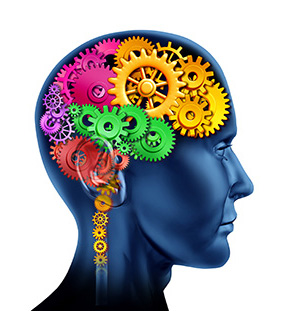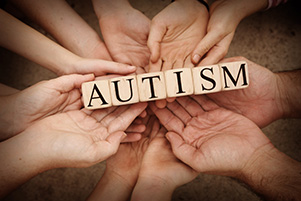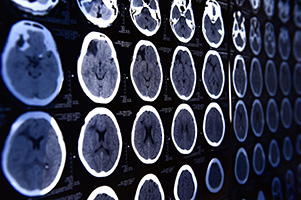What Conditions Can Neurofeedback help with?

At Brain@Work clients, from children to adults, seek treatment for a variety of reasons. Whether you want to learn to reduce anxiety or simply want to learn to focus more easily Brain@Work can help. Treatments are provided for the following reasons:
- ADD & ADHD
- Anxiety Disorders
- Autism Spectrum
- Depression
- Insomnia
- Migraines
- Peak Performance
- PTSD
- Stroke or Traumatic Brain Injury
Conditions Explained
ADD & ADHD

People with ADHD find it harder to pay attention and organize their thinking. They are easily distracted, inattentive and impulsive. This is most often treated with medications, where neurofeedback can be a more long term and healthy alternative.
Neurofeedback monitors the child’s brain behavior and the information is given back to the child by lights, games and sounds. The information is nonintellectual and non-verbal and any age can benefit. Children who have neurofeedback usually make better grades in reading and math.
The American Academy of Pediatrics listed neurofeedback as a level one, best practice intervention for children with ADD/ADHD and put it in equal standing with medication. There are no side-effects when treating a kid with neurofeedback, unlike medication it continues to work once the treatment is completed.
ANXIETY

Anxiety is a feeling of worry, unease or nervousness. This can be a normal reaction to stress, e.g. a test or assignment that is due. Most people experience this at some point in their life. When the stress starts interfering with your ability to function in your normal life, it is important to seek help. Physical symptoms of anxiety include difficulty sleeping, palpitations, excessive sweating, high blood pressure and gastrointestinal symptoms. Traumatic events, e.g. abuse, divorce, loss of a loved one can also trigger anxiety.
Neurofeedback is helpful in helping someone to regulate their own nervous system in order to have an appropriate anxiety response enabling them to keep calm.
AUTISM

Autism Spectrum Disorder, or ASD represents a group of disorders, including Autism, Pervasive Developmental Disorders, Rett Syndrome, Asperger’s Disorder and Child Disintegrative Disorder. According to research the symptoms related to ASD are the results of brain dysfunction in multiple brain regions. Electroencephalography and functional neuroimaging research has shown this to be related to abnormal neural connectivity problems. The brains of individuals with ASD show areas of deficient connectivity and excessively high connectivity. Thus meaning some parts of the brain are failing to communicate normally with other relevant regions while other parts are chatting to each other excessively.
Neurofeedback seems capable of relieving symptoms of autism by balancing out connectivity deficits in the brain, therefore relieving symptoms and enhancing the function between the brain and behavior.
DEPRESSION

Depression is a medical condition that causes a lack of interest and feelings of sadness. It affects the mind and body. Stressful life events, e.g. illness, divorce, loss of a loved one or loss of a job can cause a depressive episode. Depression is not a weakness but a sign of an imbalance in your life. It is important to seek treatment when depression occurs.
Neurofeedback is helpful by teaching the brain to better modulate itself. It is non-invasive, has no side-effects and can cause long lasting positive effects.
INSOMNIA

Insomnia is a sleep disorder that can have a variety of symptoms. People can have difficulty falling asleep, staying asleep, waking up during the middle of the night or have difficulty falling asleep after waking up.
A variety of symptoms can cause insomnia, including emotional and physical stress and illnesses. If not treated, insomnia can cause difficulty concentrating, anxiety and depression to name a few.
Infra-low neurofeedback helps by regulating the nervous system, therefore regulating the sleep cycle. Neurofeedback assists people in falling asleep, staying asleep and waking up feeling refreshed.
MIGRAINES

Migraine headaches are most often accompanied by a throbbing experience. Some patients also experience nausea, vomiting and sensitivity to light. Migraines typically last anywhere between 4 – 72 hours.
PEAK PERFORMANCE

Peak performance is a state in which a person performs to the maximum of their ability, characterized by subjective feelings of confidence, effortlessness and total concentration on the task. Anyone wanting to perform at his/her optimal level can benefit from neurofeedback, whether it is for sports, arts, jobs or studies. Neurofeedback increases the level of performance your body and mind can do, thus letting you be the best you can be.
PTSD

Post-Traumatic Stress Disorder is caused by an extreme event or series of events. A severe stress response is triggered with PTSD which leads to disruptive symptoms. Neurofeedback trains the brain to regulate the stress response and trains the brain to produce a calm state.
STROKE OR TRAMATIC BRAIN INJURY (TBI)

A traumatic brain injury (TBI) can be caused by a serious blow to your head. Some of the most frequent symptoms of a TBI are as follows:
Headaches, dizziness, confusion, blurred vision, ringing in the ears, nausea and vomiting, loss of coordination, agitation, slurred speech, dilation of one or both pupils of the eyes.
Neurofeedback plays a large role in decreasing or completely resolving many of these symptoms.
A stroke can be either ischemic, caused by a blood clot blocking the blood flow to a certain area of the brain, or hemorrhage, caused by a tear in a weakened blood vessel wall. Neurofeedback can bring improvement, even beyond the 2 year recovery mark. Neurofeedback can be particularly helpful improving speech, headache reduction and mood regulation.

